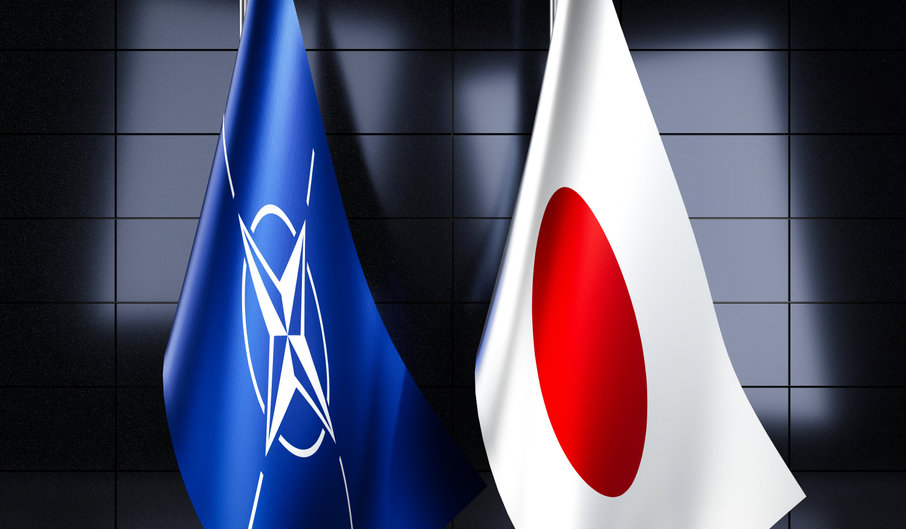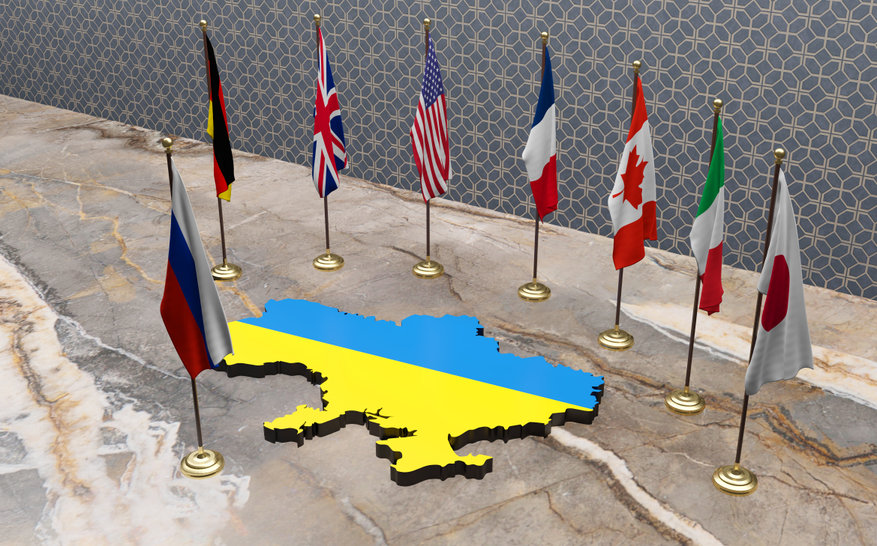Why is Japan not part of NATO?

Why is Japan not a part of NATO?
Is Japan in NATO?
Japan is a member of the G7 countries, and all members of the G7 except Japan are in NATO. Therefore, it is natural that some people wonder if Japan is in NATO or why it is not part of NATO. Is Japan in NATO? No, Japan is not in NATO.
However, Japan has been cooperating with NATO since the early 1990s.
Why is Japan not in NATO?
There are two main reasons why Japan is not part of NATO.
As the name “North Atlantic Treaty Organization” suggests, NATO is essentially a treaty organization for nations in the North Atlantic region. Located on the rim of the Pacific, Japan is not eligible to join NATO because of its geographical location.
However, Japan has a close partnership with NATO. Japan is a member of “partners across the globe” along with such countries as Australia. Nine countries are members of partners across the globe; they are Japan, the Republic of Korea, Australia, New Zealand, Iraq, Afghanistan, Pakistan, Mongolia, and Colombia.
Another reason why Japan is not a NATO member is that the Japanese Constitution states that Japan will not maintain an armed force, and the right of collective self-defense is still controversial. Clause 9 of the Japanese Constitution states that Japan does not maintain a military force. Therefore, while the country now has a so-called Self Defense Force, Japan cannot deploy to other countries in the event of an attack by another country.
Since Japan cannot deploy troops to other countries in the event of an attack because of its constitution, it is apparent that Japan cannot live up to NATO’s basic principle that if one country is attacked, member countries must unite to fight back through the right of collective self-defense.
Japan cannot match NATO’s basic principle that if one country is attacked, the member countries will unite in a counterattack through the right of collective defense. While it is relatively easy for countries such as Australia to become a NATO member if geographical problems are overcome, the dilemma of not being able to exercise the right of collective self-defense makes it extremely difficult for Japan to become a NATO member.
About the IPCP (Individual Partnership and Cooperation Program) of Japan and NATO
The IPCP lays out the main guidelines for Japan-NATO cooperation, principles of cooperation, and areas of cooperation. Former Prime Minister Abe and then Secretary General Rasmussen signed the IPCP in May, 2014.
In addition to promoting political dialogue and defense exchanges, Japan and NATO agreed to promote practical cooperation focusing on the following priority areas, including those areas of cooperation set out in the Partnership Cooperation Menu.
Priority Areas of Japan-NATO Cooperation –
・Cyber defense
・Maritime security
・Arms control, non-proliferation and disarmament with respect to conventional weapons, including small arms, weapons of mass destruction and their means of delivery, defense science and technology
・Peace, security and rights of women
・Human security
・Public diplomacy activities
・Other defense and security cooperation in areas of common interest to Japan and NATO

Strengthening NATO-Japan Ties Amidst Geo-Political Tensions-updated July, 2023
July 2023 Conference: A Step Forward in NATO-Japan Cooperation
In July 2023, Japan’s Prime Minister Fumio Kishida attended a NATO summit held in Vilnius, Lithuania. Following their discussion, Prime Minister Kishida and NATO’s Secretary General Jens Stoltenberg unveiled a “Country Specific Partnership Plan”, detailing security collaboration across 16 fields. This significant plan focuses on cooperation in areas like cyber defense, space security, and tackling disinformation. Through these measures, there is hope for enhanced interoperability between Japan’s Self-Defense Forces and the militaries of NATO countries. Given the vast geographical span that lies between Japan and NATO – covering the Eurasian and North American continents – it is evident that challenges like cyber threats, space security, and disinformation know no geographical bounds. Cooperation between these two entities, both champions of freedom, democracy, and the rule of law, is essential for global peace and stability.
NATO’s Tokyo Office: Deliberations and Dilemmas
A significant focal point of recent discussions has been the consideration of establishing a NATO liaison office in Tokyo. This proposal aims to have a representative stationed in the office, responsible for intelligence gathering and coordinating with Japan and other regional partner countries. However, this decision has faced postponement, primarily due to concerns raised by French President Emmanuel Macron. The Financial Times reported Macron’s opposition, emphasizing his belief that expanding NATO’s geographical scope would be a grave mistake. Behind Macron’s stance lies France’s reluctance to aggravate China, with whom they aim to bolster economic ties. China’s Foreign Ministry has voiced its disagreement, highlighting that Asia doesn’t fall within NATO’s geographical purview and an “Asian NATO” is unnecessary. State-run Xinhua News Agency further echoed these sentiments by releasing satirical videos criticizing NATO’s involvement in the Indo-Pacific region. For the Tokyo office to materialize, unanimous agreement among all NATO member states is imperative. Given France’s resistance, achieving consensus remains a challenge, and continued negotiations within NATO are anticipated. Professor Tsuruoka commented, “It would set an unfavorable precedent if NATO, after indicating its policy direction, were to retract due to China’s objections.”










